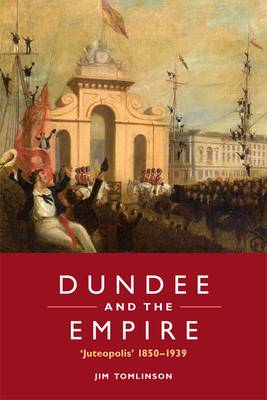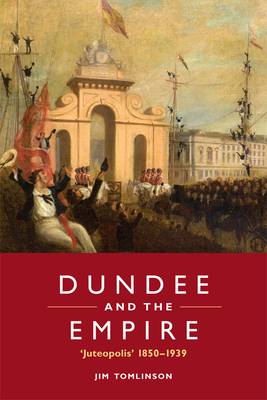
- Retrait gratuit dans votre magasin Club
- 7.000.000 titres dans notre catalogue
- Payer en toute sécurité
- Toujours un magasin près de chez vous
- Retrait gratuit dans votre magasin Club
- 7.000.0000 titres dans notre catalogue
- Payer en toute sécurité
- Toujours un magasin près de chez vous
Description
In the half century before the First World War Britain simultaneously expanded its empire and globalized its economy. This book uses the case of Dundee to analyse the impact of these issues of empire and globalization, covering the 'expansionary' period before 1914 and the much more difficult era from the First to the Second War. Dundee is especially well-suited for this purpose given both the strength of its imperial connections (especially with India) and the intensity of its globalization. How did the people of Dundee respond to the challenges of being arguably the most economically globalized city in the world? The answer is complicated by the fact that the aspect of globalization which impacted most directly on the ordinary inhabitants of the city was competition in the jute industry from Calcutta--a city within the British Empire. So Dundee had to cope not only with powerful low-wage competition in jute, its staple industry, but the political reality that for decision-makers in London the fate of the British Empire in India was far more important than the economic well-being of a small Scottish city. This history of Dundee's responses to these challenges combines global economic history with analysis of imperial relations, and examines how these issues were understood by ordinary Dundonians as well as politicians and policy-makers.
Spécifications
Parties prenantes
- Auteur(s) :
- Editeur:
Contenu
- Nombre de pages :
- 240
- Langue:
- Anglais
Caractéristiques
- EAN:
- 9780748686148
- Date de parution :
- 16-06-14
- Format:
- Livre relié
- Format numérique:
- Genaaid
- Dimensions :
- 163 mm x 236 mm
- Poids :
- 544 g

Les avis
Nous publions uniquement les avis qui respectent les conditions requises. Consultez nos conditions pour les avis.






